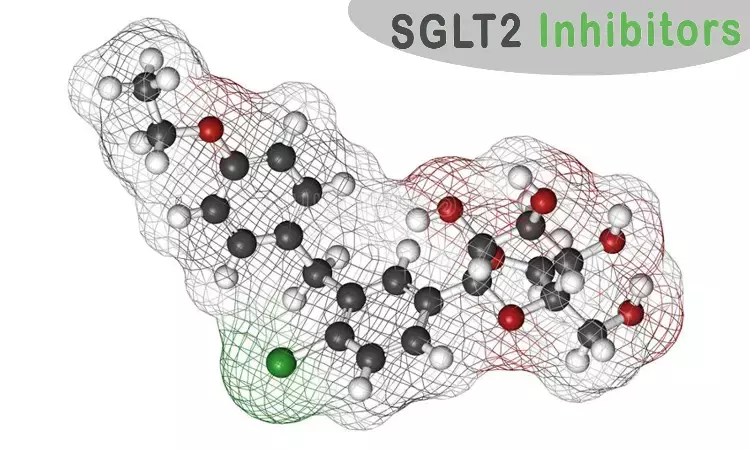- Home
- Medical news & Guidelines
- Anesthesiology
- Cardiology and CTVS
- Critical Care
- Dentistry
- Dermatology
- Diabetes and Endocrinology
- ENT
- Gastroenterology
- Medicine
- Nephrology
- Neurology
- Obstretics-Gynaecology
- Oncology
- Ophthalmology
- Orthopaedics
- Pediatrics-Neonatology
- Psychiatry
- Pulmonology
- Radiology
- Surgery
- Urology
- Laboratory Medicine
- Diet
- Nursing
- Paramedical
- Physiotherapy
- Health news
- Fact Check
- Bone Health Fact Check
- Brain Health Fact Check
- Cancer Related Fact Check
- Child Care Fact Check
- Dental and oral health fact check
- Diabetes and metabolic health fact check
- Diet and Nutrition Fact Check
- Eye and ENT Care Fact Check
- Fitness fact check
- Gut health fact check
- Heart health fact check
- Kidney health fact check
- Medical education fact check
- Men's health fact check
- Respiratory fact check
- Skin and hair care fact check
- Vaccine and Immunization fact check
- Women's health fact check
- AYUSH
- State News
- Andaman and Nicobar Islands
- Andhra Pradesh
- Arunachal Pradesh
- Assam
- Bihar
- Chandigarh
- Chattisgarh
- Dadra and Nagar Haveli
- Daman and Diu
- Delhi
- Goa
- Gujarat
- Haryana
- Himachal Pradesh
- Jammu & Kashmir
- Jharkhand
- Karnataka
- Kerala
- Ladakh
- Lakshadweep
- Madhya Pradesh
- Maharashtra
- Manipur
- Meghalaya
- Mizoram
- Nagaland
- Odisha
- Puducherry
- Punjab
- Rajasthan
- Sikkim
- Tamil Nadu
- Telangana
- Tripura
- Uttar Pradesh
- Uttrakhand
- West Bengal
- Medical Education
- Industry
SGLT2 inhibitors improve survival and renal outcomes in heart failure: Lancet

France: Treatment with empagliflozin and dapagliflozin reduces all-cause mortality and improves renal outcomes in patients with heart failure with reduced ejection fraction (HFrEF), suggests a recent study in the journal Lancet.
Bothe EMPEROR-Reduced (assessing empagliflozin) and DAPA-HF (assessing dapagliflozin) trials showed that SGLT2 inhibition reduced the combined risk of hospitalization for heart failure or cardiovascular death in HFrEF patients with or without diabetes. However, neither trial assessed effects on cardiovascular death or all-cause death or to characterize effects in clinically important subgroups.
Prof Faiez Zannad, Institut Lorrain du Coeur et des Vaisseaux Louis Mathieu, Vandoeuvre les Nancy, France, and colleagues aimed to estimate the effect of SGLT2 inhibition on fatal and non-fatal heart failure events and renal outcomes in all randomly assigned patients with HFrEF and in relevant subgroups from DAPA-HF and EMPEROR-Reduced trials. They used study-level published data from DAPA-HF and patient-level data from EMPEROR-Reduced.
The researchers conducted a prespecified meta-analysis of the two single large-scale trials assessing the effects of SGLT2 inhibitors on cardiovascular outcomes in patients with HFrEF with or without diabetes: DAPA-HF (assessing dapagliflozin) and EMPEROR-Reduced (assessing empagliflozin).
The primary endpoint was time to all-cause death. Additionally, they assessed the effects of treatment in prespecified subgroups on the combined risk of cardiovascular death or hospitalization for heart failure. These subgroups were based on type 2 diabetes status, age, sex, angiotensin receptor neprilysin inhibitor (ARNI) treatment, New York Heart Association (NYHA) functional class, race, history of hospitalization for heart failure, estimated glomerular filtration rate (eGFR), body-mass index, and region (post-hoc).
Key findings of the study include:
- Among 8474 patients combined from both trials, the estimated treatment effect was a 13% reduction in all-cause death (pooled HR 0·87) and 14% reduction in cardiovascular death (0·86).
- SGLT2 inhibition was accompanied by a 26% relative reduction in the combined risk of cardiovascular death or first hospitalisation for heart failure (0·74), and by a 25% decrease in the composite of recurrent hospitalisations for heart failure or cardiovascular death (0·75).
- The risk of the composite renal endpoint was also reduced (0·62).
- All tests for heterogeneity of effect size between trials were not significant.
- The pooled treatment effects showed consistent benefits for subgroups based on age, sex, diabetes, treatment with an ARNI and baseline eGFR, but suggested treatment-by-subgroup interactions for subgroups based on NYHA functional class and race.
"The effects of empagliflozin and dapagliflozin on hospitalizations for heart failure were consistent in the two independent trials and suggest that these agents also improve renal outcomes and reduce all-cause and cardiovascular death in patients with HFrEF, concluded the authors.
The study, "SGLT2 inhibitors in patients with heart failure with reduced ejection fraction: a meta-analysis of the EMPEROR-Reduced and DAPA-HF trials," is published in the Lancet journal.
DOI: https://www.thelancet.com/journals/lancet/article/PIIS0140-6736(20)31824-9/fulltext
Dr Kamal Kant Kohli-MBBS, DTCD- a chest specialist with more than 30 years of practice and a flair for writing clinical articles, Dr Kamal Kant Kohli joined Medical Dialogues as a Chief Editor of Medical News. Besides writing articles, as an editor, he proofreads and verifies all the medical content published on Medical Dialogues including those coming from journals, studies,medical conferences,guidelines etc. Email: drkohli@medicaldialogues.in. Contact no. 011-43720751


